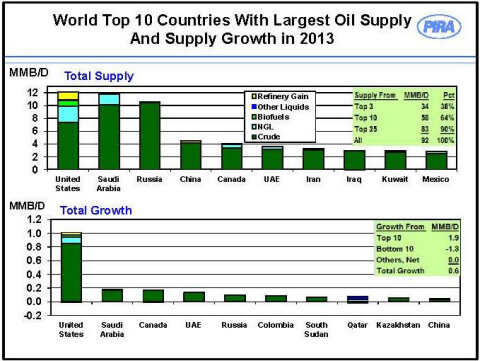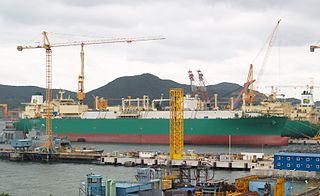This post originally appeared over at the Emerson South Korean blog earlier today to celebrate the 200th translated Emerson Process Experts post shared with process manufacturers in South Korea. Thanks to the South Korean Emerson team for their efforts in bringing some of these posts to their readers!
The global energy supply mix is undergoing rapid change. Natural gas [shale gas] and oil [tight oil] from shale formations is increasing the known global oil & gas reserves. A recent PIRA Energy Group report noted that the United States has become the World’s largest oil producer.

Source: Business Wire, PIRA Energy Group Reports that the U.S. Is Now the World’s Largest Oil Supplier, https://jimc.me/1bZ71oS
This rapid change impacts the global supply chain for oil and gas. A recent Economist article, Extreme drilling, highlighted shipbuilding in South Korea:
SOUTH KOREA’S shipyards are having a busy time at the moment welding the behemoths of the shipping industry into shape. Clustered around Busan, the country’s second city, the big three yards—Samsung Heavy Industries (SHI), Daewoo Shipbuilding and Marine Engineering and Hyundai Heavy Industries—are churning out Maersk’s “Triple-E” class, which at 400 metres in length are the world’s biggest container ships; an oil barge that at 460 metres long is just under half the height of England’s tallest mountain, Scafell; and some of the largest-ever jack-up oil rigs. Equally impressive are the latest “ultra-deepwater” drill ships.
These drill ships are designed for the deep waters in the Gulf of Mexico below the United States Southern coast and off the coast of West Africa.
The article notes a caution to the production of these large drill ships:
As this change occurs, there is a need to move the large quantities of natural gas produced in the U.S. around the globe to balance supply with demand. The liquefaction process compresses natural gas volume by a factor of 600. Liquefied natural gas (LNG) plants are being built along coastal areas to LNG carriers, which transport the natural gas across oceans.But there could be a hitch: hydraulic fracturing, better known as fracking. As one analyst reminds me, these very expensive ultra-deepwater ships were mostly designed before fracking took off in America a few years ago. Now energy companies hanker after “tight” oil and gas, rather than the deepwater stuff, as it is a much simpler process and less costly to extract.
In the late 1990s, the concept of placing the LNG process on ships was developed and named floating liquefied natural gas (FLNG).
Today South Korean shipbuilders are actively building these large, complex ships. A recent World Maritime News article, South Korea: Key Milestone for Shell’s Prelude FLNG, highlighted the world’s first floating liquefied natural gas (FLNG) project. The article’s author describes this project’s purpose:
FLNG will allow Shell to produce natural gas at sea, turn it into liquefied natural gas and then transfer it directly to the ships that will transport it to customers. It will open up new opportunities for countries looking to develop their gas resources and bring more natural gas to market.
An amazing video on the Shell Youtube channel shows a recent construction milestone on the Prelude FLNG project joining massive hull sections together.
While global oil and gas supply sources rapidly change, the need to move the supply to meet global demand remains a technology challenge. Shipbuilders, engineering contractors, main automation contractors including Emerson, and a host of other suppliers working with the energy producers are meeting this challenge.





